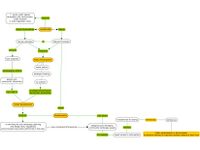Democratic Landscape Transformation 2024 - Team 13
>>> Back to working group overview
>>> Back to seminar reading list
>>> go to the Editing Help
Team Background
- A'mina Santina: Grew up in a multicultural family, I'm currently studying Building engineering and Architecture at the University of Bologna.
- Yadhira Peña: I´m an architect and environmental urbanist from Peru. I studied my career in the Scientific University of the South in Lima.
- Tommaso Ridolfi: Hi everyone! I’m from Italy and my mother-language is Italian but I can also speak English and French fluently. I'm a student at the University of Bologna, currently attending a Combined Bachelor and Master degree in Building engineering and Architecture. I’ve always been interested in enhancing my knowledge in Architectural landscape and I think this course can give me a lot from this prospective.
- Eva Rathgeber:
- Szabo Balazs:
Landscape Democracy Manifestoes
- A’mina Santina: https://www.canva.com/design/DAGCwyDMY5U/FoCkw_UrVOVqtFwsJhsd5g/edit?utm_content=DAGCwyDMY5U&utm_campaign=designshare&utm_medium=link2&utm_source=sharebutton
- Tommaso Ridolfi: https://drive.google.com/file/d/1kWnR6r7VtQRcrth6Jad-jDmfwmmu9vuR/view?usp=drive_link
- Yadhira Peña: https://docs.google.com/presentation/d/1Q81al5jOXm_rQ_fmxSfS61hYZD02WlT6LJH5cFkw43Q/edit?usp=drive_link
Readings, concepts and definitions
- Start: April 3, 2024
- Due: July 2, 2024
While working in your group, please start to express your personal understanding of the relation of landscape and democracy in the form of a concept map with linking words or any other diagrammatic representation. Please make your maps very visual and not just verbal. Think critically about why one map differs from another.
The final product is a shared concept map that integrates the various understandings present within your team.
About concept mapping
Before starting the exercise you can read this article by Joseph D. Novak & Alberto J. Cañas about Theory Underlying Concept Maps and How to Construct and Use Them. This paper gives a good explanation of how concept maps are conceived and developed.
You can use any tool you like for producing your concept map. However, since the result needs to be submitted digitally we recommend the following open source software for producing your maps:
- Cmap Tools >>> you can also work with your group on the Cmap cloud doing a shared map
- VUE - The Visual Understanding Environment
- Use a shared whiteboard to develop your integrated concept map, such as MIRO or MURAL
How to present your concept maps
- Possible format: JPG (for wiki upload) or link to any other resource
- We give you below a draft image gallery where you can add pictures of your map (in JPG or PNG format)
- You can present your integrated understanding as one concept map or your present individual ones and the integrated one.
- add as many additional materials as you need
Concept Maps Overview
Reflection
- What are the similarities and differences in your team regarding your understanding of what democratic landscape transformation is?
- In how far did the seminar lectures and readings help you to clarify this?
- What will you take home from this seminar?
We have found hard to express a short reflection on a course with a program that has very dense informations. We have been able to catch them from every meeting, every group session and breakout rooms. It has been such a nice experience to interchange ideas and exchange opinions on different topics but with all the same thread.
We all agree in the Art.1 of the UN declaration of Human rights: "All human beings are born free and equal in dignity and rights. They are endowed with reason and conscience and should act towards one another in a spirit of brotherhood". And as we deepen in the concept of Landscape, which means an area, as perceived by people, whose character is the result of the action and interaction of natural and/or human factors, is also necessary to understand the importance of Partecipation in this concept, which also comes from education, an instrument that brings the ability to critically and creatively deal with reality andd discover how to participate in the transformation of their world.
So from Henri Lefebvre we got the "right to change ourselves by changing the city more after our desires", and this can be done by recognizing the community's identities, values and ambitions, and Democracy, which is the spatial materialisation of public landscape.
